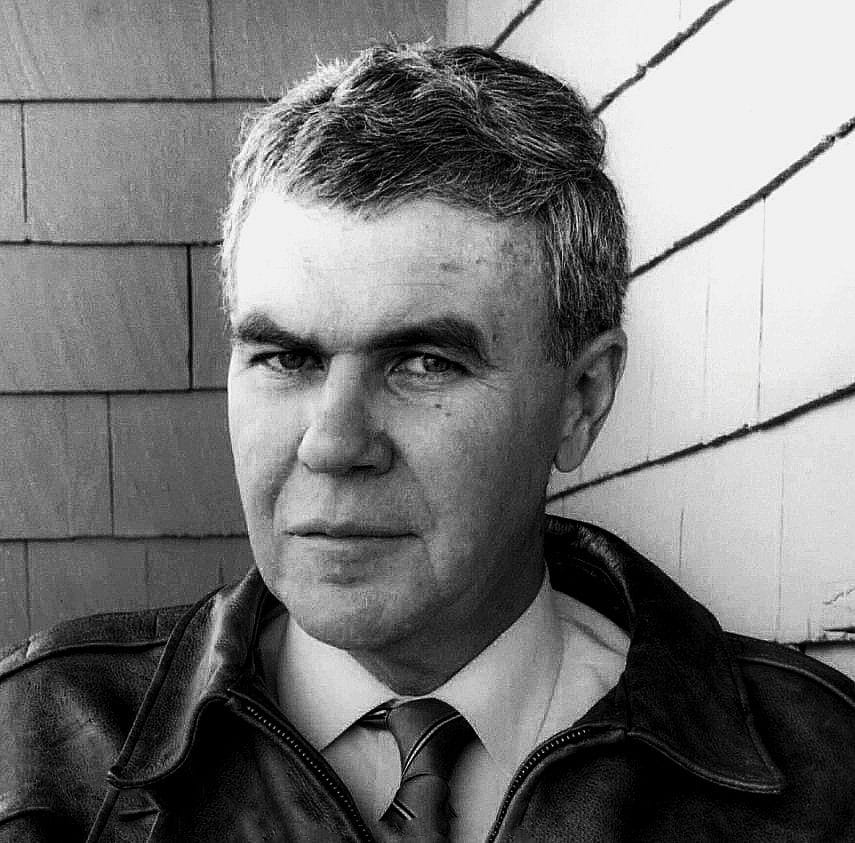–
[ezcol_1half]–
límites
–
–
Todo el día disparándoles a los gansos
desde un escondite en la cima
de la barranca. Reventando una bandada
tras otra, hasta que el cañón de las escopetas
nos quemaba al tocarlo. Los gansos
llenaban el frío plomizo del aire. Pero
no nos quedamos en nuestro límite.
El viento desviaba los disparos
a cualquier sitio. A media tarde,
teníamos cuatro. Dos nos sacaron
del límite. Sedientos, nos sacaron
del escondite y nos llevaron por una sucia carretera
junto al río.
–
Hasta una granja de mala pinta
rodeada de áridas extensiones de
cebada. Donde, casi al atardecer,
un hombre al que le faltaban trozos de piel
en las manos nos permitió refrescarnos
con un balde en el porche.
Luego nos preguntó si queríamos ver
una cosa – un ganso canadiense que tenía
vivo en un barril al lado
del granero. El barril tapado
con alambre, revestido por dentro
como una pequeña celda. Le había roto
el ala con un disparo desde lejos,
dijo, luego lo atrapó
y lo metió en el barril.
¡Había tenido una idea genial!
Utilizaría aquel ganso como reclamo.
–
Con el tiempo lograría
la cosa más endemoniada que él hubiera visto.
Atraería a otros gansos
que revolotearían a la altura de su cabeza.
Tan cerca que casi podría tocarlos
antes de dispararles.
A este hombre nunca le faltarían los gansos.
Y por eso le da al suyo
todo el maíz y la cebada
que pueda comer, y un barril
para vivir en él, y para cagar en él.
Me quedé mirándole largo rato y,
sin moverse, el ganso me devolvió la mirada.
Con su mirada me decía
que estaba a salvo. Luego nos fuimos
mi amigo y yo. Todavía
con ganas de matar cualquier cosa
que se moviera o que alzara
el vuelo. No
recuerdo si cazamos algo más
aquel día. Lo dudo.
Era casi de noche.
No importa, ahora. Pero durante años
y años grapados
por la amargura, no
me olvidé de aquel ganso.
Lo diferenciaba de todos los demás,
vivos o muertos. Llegué a comprender
cómo uno puede ser utilizado para algo
y llegar a convertirse en un extraño.
Entendí que la traición es otra forma de nombrar
la derrota, el hambre.
[/ezcol_1half] [ezcol_1half_end]–
–
limits
–
–
All that day we banged at geese
from a blind at the top
of the bluff. Busted one flock
after the other, until our gun barrels
grew hot to the touch. Geese
filled the cold, grey air. But we still
didn’t kill our limits.
The wind driving our shot
every which way. Late afternoon,
and we had four. Two shy
of our limits. Thirst drove us
off the bluff and down a dirt road
alongside the river.
–
To an evil-looking farm
surrounded by dead fields of
barley. Where, almost evening,
a man with patches of skin
gone from his hands let us dip water
from a bucket on his porch.
Then asked if we wanted to see
something – a Canada goose he kept
alive in a barrel beside
the barn. The barrel covered over
with screen wire, rigged inside
like a little cell. He’d broken
the bird’s wing with a long shot,
he said, then chased it down
and stuffed it in the barrel.
He’d had a brainstorm!
He’d use that goose as a live decoy.
–
In time it turned out to be
the damnedest thing he’d ever seen.
It would bring other geese
right down on your head.
So close you could almost touch them
before you killed them.
This man, he never wanted for geese.
And for this his goose was given
all the corn and barely
it could eat, and a barrel
to live in, and shit in.
I took a good long look and,
unmoving, the goose looked back.
Only it eyes telling me
it was alive. Then we left,
my friend and I. Still
willing to kill anything
that moved, anything that rose
over our sights. I don’t
recall if we got anything else
that day. I doubt it.
It was almost dark anyhow.
No matter, now. But for years
and years afterwards, living
on a staple of bitterness, I
didn’t forget that goose.
I set it apart from all the others,
living and dead. Came to understand
one can get used to anything,
and become a stranger to nothing.
Saw that betrayal is just another word
for loss, for
hunger.
[/ezcol_1half_end]
[ezcol_1half]
–
Raymond Carver
–
Límites
Todos nosotros
Poesía reunida
S. L. Bartleby Editores
2006, 3ª edición
Velilla de San Antonio
Selección, traducción y prólogo de Jaime Priede
Original: Collected poems
The Harvill Press
Londres 1996
–
[/ezcol_1half]



0 comentarios